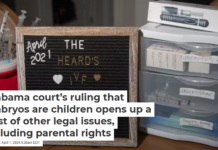

By Danny Sullivan, Monash University
Confessions constitute strong evidence of wrongdoing, but not all of them are reliable. So what can the legal system do to ensure justice is done? A US judge is deciding on exactly this matter in a prominent trial of a man accused of what The New York Times has described as “one of the most infamous crimes” in the city’s history.
Pedro Hernandez, a 53-year-old man described as being of limited intellect and with a history of mental illness, is charged with the historical murder of Etan Patz. The six-year-old boy disappeared on his way to school in Manhattan in 1979.
The case remained unsolved for 33 years until police arrested Hernandez on May 23, 2012. He is said to have confessed after a long day of “emotional” questioning.
At issue now is Hernandez’s confession; the legal discussion has been about whether it should be admissible as evidence in his trial.
Inbuilt biases
There’s a strong body of evidence about confessions. In the past, a number of wrongful convictions have relied on false confessions: the Guildford Four and the Birmingham Six are the most famous British cases.
While being questioned by police, a suspect may make a false confession while exhausted, intoxicated or withdrawing from drugs or alcohol; they may not understand the purpose of the interview or how their confession will be used in court; or their confession may be influenced by mental illness or intellectual disability.
In the case of Hernandez, it’s suggested he was not read the standard caution until six hours into the police interview in which he confessed to killing Patz. And that he did not understand his right to remain silent.
Most jurisdictions protect the rights of a suspect and generally ensure police caution them about such rights. They also allow the suspect to seek legal advice prior to interview. But research shows the wording of such cautions may require language skills commensurate with mid-secondary schooling.
Given the prevalence of mental disorders, cognitive impairment and language disorders in the criminal justice system, the caution and language used may be too complex for a significant number of suspects.
An independent observer or an assessment of fitness for interview by a forensic medical officer or psychiatrist are possible safeguards, but both measures still rely on recognition of potential disorders by police.
Researchers who have investigated the basis of false confessions highlight interrogation techniques and tactics that may increase untrue confessions, as well as characteristics of the person being questioned.
In particular, they propose some people are suggestible, will acquiesce, or are unduly compliant. In the context of an emotionally charged interview, they may be prone to confessing to offences they didn’t commit. Even when subsequently retracted, the confession evidence may be sufficient to result in conviction.
The law’s disinterest
In addition to structural and political biases that may be associated with incorrect findings of guilt, retrospective assessments of miscarriages of justice often note that a confession may prevent proper scrutiny of other – potentially exculpating – facts.
Evidence law provides a statutory framework to determine what material can be presented to a judge or jury. As in the Etan Patz case, there may be dispute about the understanding of a caution, the circumstances of interview and whether cognitive impairment or mental disorder resulted in unreliable admissions.
At issue here is a strong piece of evidence that may bring to justice the murderer in a shocking and emotional case. But the justice system shouldn’t be blinded by emotion or overlook troubling elements of a police interview and confession, as well as the characteristics of the accused person.
In Australia, the Uniform Evidence Law has over recent years provided a robust framework to restrict the admission of evidence to what has been properly obtained. What’s more, the likelihood that evidence is probative (assists the court) must outweigh its potential unnecessarily to prejudice a judge or jury.
Nevertheless, we could still perhaps do more to ensure that vulnerable people are identified and appropriately supported during police interviews.
For Pedro Hernandez, the discussion about the admissibility of his confession may seem abstract and technical, involving mental health professionals and cognitive and psychiatric assessments. But the vulnerability of mentally disordered people warrants a range of strong protections to prevent erroneous convictions. These may otherwise diminish the reputation of the justice system.
![]()
Danny Sullivan does not work for, consult to, own shares in or receive funding from any company or organisation that would benefit from this article, and has no relevant affiliations.
This article was originally published on The Conversation.
Read the original article.



















